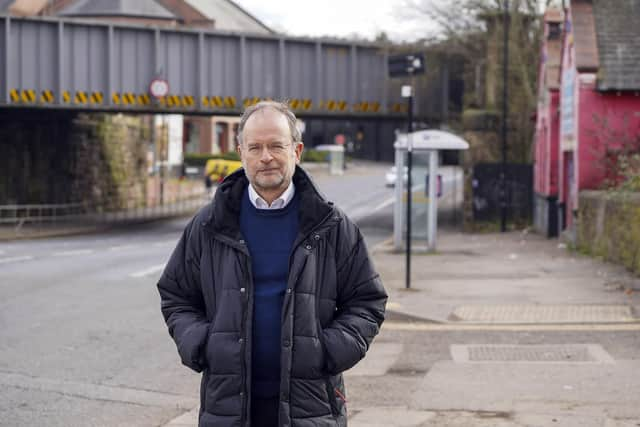Gambling regulation needed as children under 15 become addicted - Paul Blomfield MP
Their son, Jack, was one of the more than 400 people estimated each year to take their life due to gambling addiction, but he was never diagnosed with a gambling disorder; he was told by health professionals that he had an addictive personality that he would have to learn to live with.
During the inquest into his death, the coroner described gambling warnings, information and treatment as “woefully inadequate”.
Advertisement
Hide AdAdvertisement
Hide AdThe coroner’s “Prevention of future deaths” report states: “The treatment available and received by Jack was insufficient to cure his addiction—this in part was due to a lack of training for medical professionals around…diagnosis and treatment”.


Jack took his life in 2017, but unfortunately things have not changed enough since then. As I said to the honourable Member for Blackpool South (Scott Benton), according to the latest data from GambleAware, National Gambling Treatment Service statistics show that 49 per cent of users still have a risk level of 3+, indicating that they remain at risk when their treatment has finished.
We need to acknowledge, as the gambling review does in a sense, that we need to do more and much better.
Despite the wholly unfortunate characterisation of those of us making this argument as an anti-gambling lobby, I thought the honourable Member for Blackpool South helped our argument considerably when he talked about the inadequacy of provision in the NHS. He is right; that is at the core of our argument.
Advertisement
Hide AdAdvertisement
Hide AdTreatment, public messaging and prevention of harm are not sufficient in the UK to combat the severe harm experienced by gamblers exposed to dangerous products.
The Advisory Board for Safer Gambling explained the problems with the current voluntary system: a lack of transparency, a lack of equity across operators, a record of insufficient funding, and unpredictable voluntary funding that creates barriers to distributing money where it can have the most impact, such as the NHS.
The Betting and Gaming Council often boasts about how its leading members volunteered to boost their joint funding of education and treatment services to £100m during the 2019-23 period. That figure of £100m – plucked from the air – over four years is not generous; it is a tiny proportion of the extraordinary profits those members make from other people’s difficulties.
Most importantly, it does not come close to tackling the scale of the task we face.
Advertisement
Hide AdAdvertisement
Hide AdAs the honourable Member for Blackpool South pointed out, there are only five gambling treatment centres in the UK, with two further centres planned to be opened this year.
That is against a background in which research published by Public Health England last September estimated that about 0.5 per cent of the adult population—about a quarter of a million people—are likely to have some form of gambling addiction, with some 2.2 million either problem gamblers or at risk of addiction.
According to research by the University of Bristol – this is a figure that we really need to stop and think about – 55,000 children under the age of 15 have a gambling addiction. Jack’s addiction started while he was at school. A statutory levy is vital to ensure we have the sufficient funds to meet the challenge presented by gambling as it operates now. The levy must be independently collected and channelled into the NHS, so that the industry does not have undue influence over its allocation.
There is a recent proposal from the Social Market Foundation to administer the levy through an independent levy board, which would allocate resource and ensure that the NHS services required are sufficiently funded. Existing organisations funded by the industry have an obvious conflict of interest and cannot fulfil that function.
Advertisement
Hide AdAdvertisement
Hide AdWe are beginning to move away from the individual responsibility model and attitude to gambling problems towards a public health approach.
As we do that, we need to change the Gambling Commission’s third objective so that it has a clear responsibility to minimise gambling harm by protecting the whole population.
- This is an edited excerpt of a Parliamentary speech by the Labour MP for Sheffield Central during a debate on a Statutory Gambling Levy.